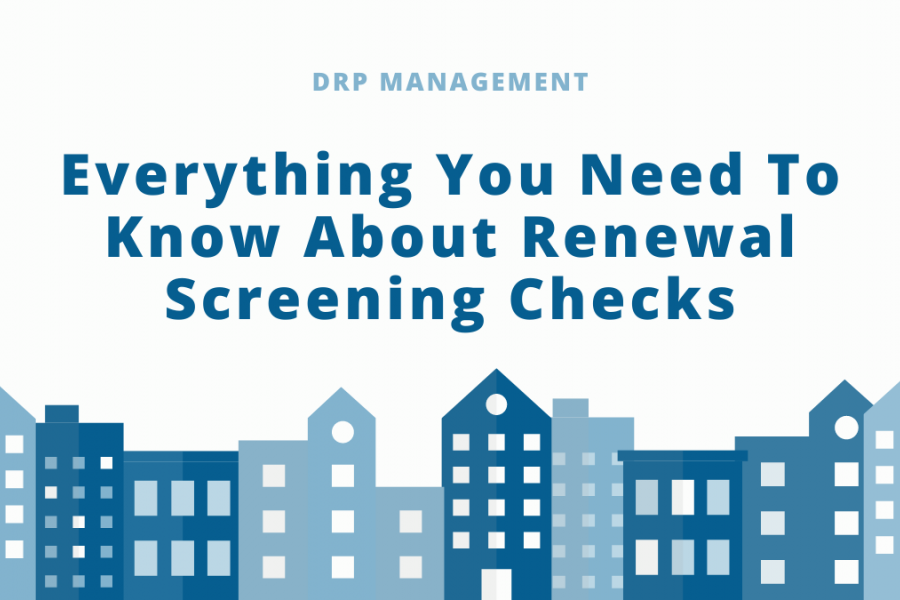
Renewal screening checks are a crucial step in the property management process for landlords, ensuring that the continued tenancy of existing renters aligns with their rental standards and policies.
Use this comprehensive guide to get an in-depth understanding of renewal screening checks, their importance, and how to conduct them effectively.
Understanding Renewal Screening Checks
Renewal screening checks are evaluations conducted by landlords or property managers before extending a current lease agreement with a tenant.
These checks are similar to the initial tenant screening process but focus on reviewing the tenant's behavior and compliance with the lease agreement during their current tenancy. The objective is to reassess the tenant's suitability for continued occupancy in the property.
The Importance of Renewal Screening Checks
Conducting renewal screenings is pivotal for several reasons:
- Risk Mitigation: It helps identify any potential risks or issues that might have arisen during the tenancy, such as late payments, property damage, or violations of lease terms.
- Lease Compliance: Ensures the tenant has complied with all the terms of the lease agreement, maintaining the property's condition and adhering to rules.
- Updated Information: Captures any changes in the tenant's employment status, income, or personal circumstances that might affect their ability to pay rent.
- Neighborhood Harmony: Assesses the tenant's integration into the community, ensuring they contribute positively to the neighborhood's ambiance.
Components of Renewal Screening Checks
Renewal screening checks can include, but are not limited to, the following components:
.jpg)
- Rental Payment History: Review the tenant's rent payment history for any late payments, defaults, or inconsistencies.
- Property Maintenance: Inspect the property for any damages or neglect beyond normal wear and tear. This may involve a physical inspection with prior notice.
- Lease Violation Checks: Verify if there have been any breaches of the lease terms, such as unauthorized occupants, pets, or illegal activities.
- Employment and Income Verification: Reassess the tenant's employment status and income to ensure they can continue to afford the rent.
- Neighbor Feedback: Collect feedback from neighbors or other tenants if applicable, to gauge the tenant's community conduct.
Conducting Effective Renewal Screenings
To conduct a thorough and fair renewal screening, landlords should follow these best practices:
- Transparent Communication: Inform tenants well in advance about the renewal screening process, the criteria for evaluation, and the potential outcomes.
- Documented Criteria: Have clear, documented criteria for what constitutes grounds for non-renewal to ensure fairness and avoid discrimination claims.
- Respect Privacy: Ensure the screening process respects the tenant's privacy and complies with all relevant laws and regulations.
- Professional Conduct: Approach the screening process professionally, maintaining a respectful and courteous demeanor towards tenants.
Legal Considerations
Landlords must be mindful of the legal framework governing renewal screenings, which can vary by jurisdiction. Key legal considerations include:
- Fair Housing Laws: Ensure the screening process is non-discriminatory and complies with fair housing laws, treating all tenants equitably.
.jpg)
- Right to Privacy: Respect tenants' privacy rights during property inspections and when accessing personal information.
- Notice Requirements: Adhere to local laws regarding the notice period required before a lease is not renewed or before conducting a property inspection.
How Professional Property Managers Help With Renewal Screening Checks
1. Expertise in Legal Compliance
Professional property managers are well-versed in the legal aspects of property management, including fair housing laws, privacy regulations, and local tenancy laws.
They ensure that renewal screenings are conducted in compliance with these laws, reducing the risk of legal implications for landlords. Their knowledge helps in drafting lease agreements and renewal terms that are legally sound and enforceable.
2. Efficient Screening Processes
Property managers typically have established procedures for conducting renewal screenings, making the process more efficient and thorough. They use standardized checklists and criteria for evaluating tenants, ensuring that all necessary aspects are covered.
3. Objective and Impartial Assessments
One of the key benefits of involving property managers in renewal screenings is their objectivity. Being detached from personal relationships with the tenants, they can make impartial assessments based on the facts and criteria established.
This impartiality helps in making fair decisions, reducing the likelihood of disputes or claims of discrimination.
4. Effective Communication and Negotiation
Property managers are skilled in communication and negotiation, acting as intermediaries between landlords and tenants. They can effectively convey the requirements and outcomes of the renewal screening process to tenants, addressing any concerns or questions they might have.
.jpg)
5. Maintenance and Inspection Coordination
Part of the renewal screening process involves assessing the property's condition and ensuring compliance with maintenance standards.
Property managers can coordinate inspections, assess any damages, and arrange necessary repairs or maintenance work efficiently. They ensure that the property remains in good condition, adhering to the terms of the lease and the landlord's expectations.
6. Time and Stress Reduction
Handling renewal screenings can be time-consuming and stressful for landlords, especially those with multiple properties or other commitments.
By delegating this responsibility to professional property managers, landlords can save time and reduce the stress associated with the screening process.
This allows landlords to focus on other aspects of their investments or personal commitments while ensuring that their properties are managed effectively.
Conclusion
Renewal screening checks are a vital component of property management, ensuring that tenancies remain beneficial for both landlords and tenants.
By conducting these checks thoughtfully and complying with legal requirements, you can maintain property standards, foster positive tenant relationships, and contribute to the overall well-being of their rental communities.
The goal of renewal screenings is not only to assess tenant suitability but also to reinforce the standards of your property and ensure its long-term success.
Professional property managers play a crucial role in the renewal screening process, offering expertise, efficiency, and a level of professionalism that benefits both landlords and tenants.
Contact DRP Management if you need help, and we’ll be happy to serve you!
